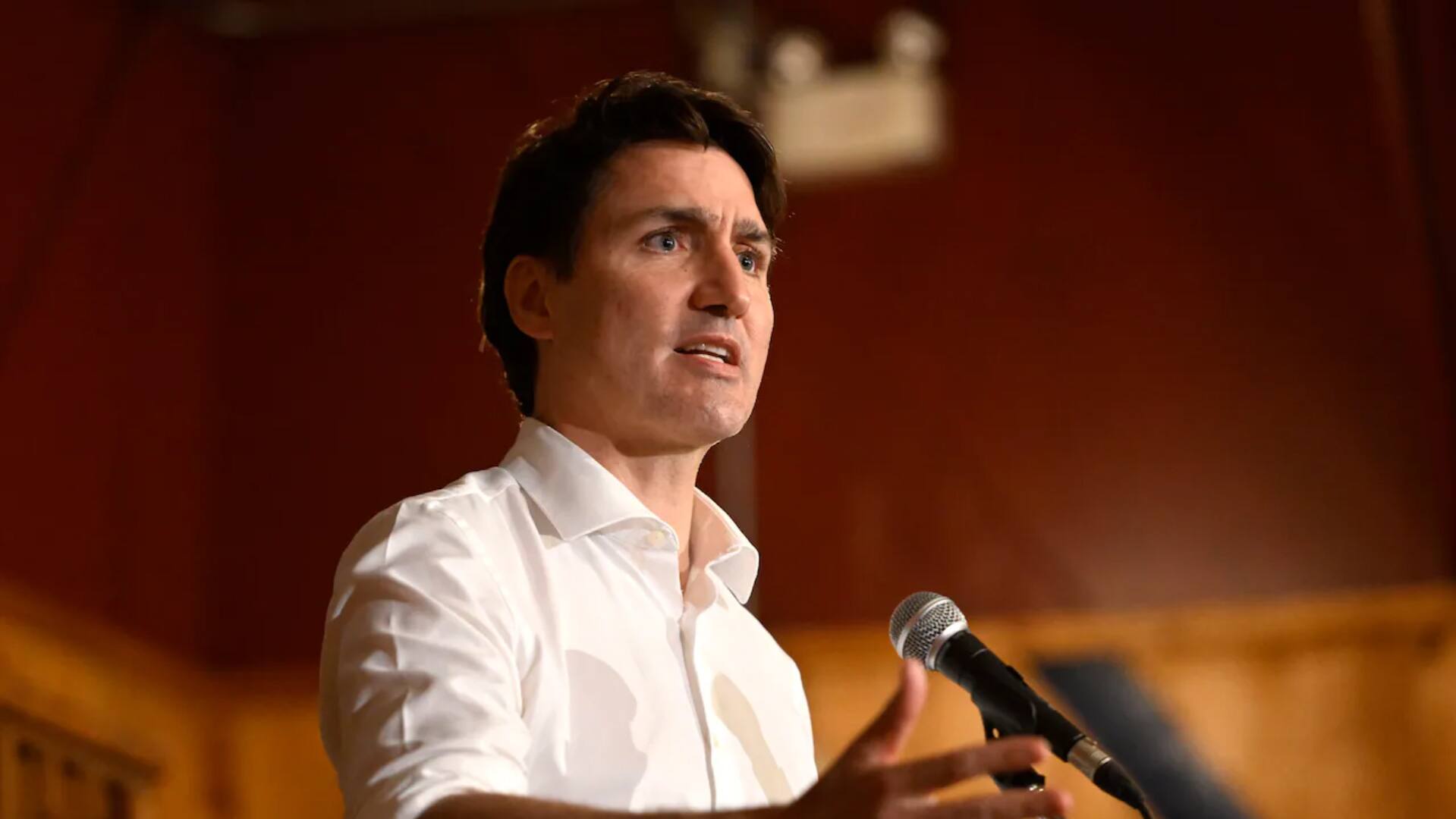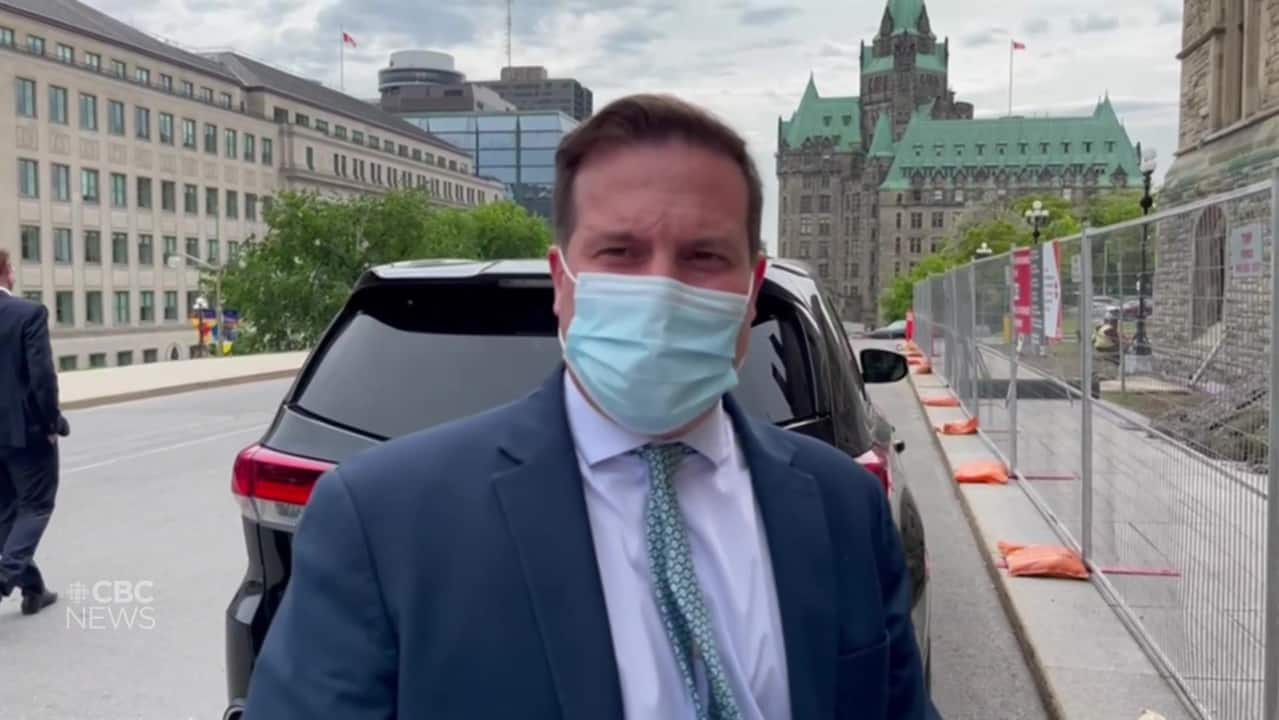On the night before Justin Trudeau took the historic step of invoking the Emergencies Act during last February’s Freedom Convoy occupation of Ottawa, the prime minister’s national security and intelligence adviser told cabinet there was “potential for a breakthrough,” court documents reveal.
The office of Canada’s public safety minister says the adviser was referring to negotiations led “principally” by the City of Ottawa that were “ultimately unsuccessful” after being “disavowed” by many associated with the convoy.
The disclosure about the potential breakthrough, contained in the summary of a cabinet meeting that took place on the evening of Feb. 13, 2022, comes in one of several heavily redacted documents recently filed in federal court. Civil liberties groups are legally challenging the government’s use of the act, saying it went too far.
The Toronto Star first reported on the documents.
According to the cabinet meeting minutes, which are not a verbatim transcript, Jody Thomas — the former deputy minister of national defence and one of Trudeau’s top advisers — told Trudeau and his assembled ministers that “law enforcement gains have been important and that there was potential for a breakthrough in Ottawa, Ontario.”
Emergency Act invoked for 1st time in Canadian history
Protesters were rallying against pandemic restrictions and blocked neighbourhood access and main arteries around Parliament Hill by clogging the streets with trucks and other vehicles.
The next day, on Feb. 14, Trudeau invoked the Emergencies Act for the first time in Canadian history.
Doing so gave authorities sweeping temporary powers, including the ability to freeze the bank accounts and credit cards of protesters. Attending any event deemed an unlawful assembly, such as the Ottawa convoy protest, also became illegal.
WATCH | Justin Trudeau defends use of Emergencies Act:

Trudeau defends vaccine mandates, Emergencies Act in CBC Radio interview
Prime Minister Justin Trudeau told CBC Radio’s The House host Chris Hall that people who decided not to get vaccinated made a choice that came with consequences.
The act also made it possible for officers from outside of Ontario to participate in the operation to end the protest.
The act went into effect immediately but the debate about its merits in the House of Commons and Senate stretched on even as police quelled the last remnants of the demonstration on Feb. 19. Trudeau revoked the act five days later.
Sections of the document made available in the court documents do not include any details about the possible breakthrough cited by Thomas on Feb. 13.
But according to the statement from Public Safety Minister Marco Mendicino’s office, the adviser was referring to negotiations led by the City of Ottawa.

On Feb. 13, the city announced it had come to an agreement with one of the leaders of the demonstration that would see hundreds of protest trucks to leave residential areas.
The city’s talks were ultimately unsuccessful, Mendicino’s office said.
“The government considered this as a factor in the decision to invoke the Emergencies Act,” according to the statement.
“The situation remained volatile and the threat of future blockades remained. In Ottawa, there was a significant escalation in the boldness of the protestors and stress that the city’s 911 system was overloaded due to hoax calls.”
Few trucks actually left as a result of the city’s negotiations, though some ended up on Wellington Street — already the noisy nucleus of the protest. One of the protest’s leaders, Tamara Lich, cast doubt on whether such a deal had actually been made.
Weeks after the occupation ended, Thomas defended the decision to use the act, saying the protesters were “dug in” and “there’s no doubt [they] came to overthrow the government.”
‘Lead federal negotiator’ considered
The documents also shed light on other behind-the-scenes discussions among cabinet and other members of the government’s Incident Response Group (IRG) during the Freedom Convoy.
In a meeting earlier in the day on Feb. 13, the group heard that blockades were at risk of causing “ongoing economic losses of 0.1 per cent and 0.2 per cent of gross domestic product” for every week they continued.
That same day, police dispersed a blockade of the Ambassador Bridge in Windsor, Ont., a key supply link between Canada and the U.S.
It was noted during the Feb. 10 meeting that “there is a broader challenge with law enforcement, some of whom may be sympathetic to the protestors’ cause, resulting in reluctance to enforce.”
Meeting minutes also show Ottawa was considering the appointment of a “lead federal negotiator” during the crisis. Publicly, Trudeau had spoken against the idea of personally meeting with convoy members.
Also on Feb. 10, Public Safety Canada reported that only a small minority — five per cent of participants — had a “strong devotion” to the protest in Ottawa, whereas 80 per cent had “a weak connection to the cause” and the remaining 15 per cent were “a swing factor.”
“The negotiator suggested that the leaders of the protest could potentially be encouraged to leave and denounce the blockade in exchange for a commitment to register their message with the government,” according to the minutes of that day’s IRG meeting.
WATCH | Public safety minister says Emergencies Act was necessary to protect Canadians:

Public safety minister defends his decision to invoke Emergencies Act to clear out Ottawa protest
As members of the Official Opposition continue to call for his resignation, Public Safety Minister Marco Mendicino defended his decision to invoke the Emergencies Act, saying it was necessary to protect Canadians.
NDP flags transparency concern
The New Democrats said the documents’ disclosures reveal “a clear failure of the Liberals to be transparent with Canadians and Parliamentarians.”
In a joint statement, MP Alistair MacGregor, the NDP’s public safety critic, and MP Matthew Green, ethics critic, said the parliamentary committee that is studying the use of the Emergencies Act must have full access to documents.
“We are concerned by this government providing documents to the federal court that it refused to give the [committee],” they said.
The Conservative Party of Canada was also critical of the federal government in light of the disclosures.
“Minister Mendicino has already misled Canadians to justify the Liberal government giving itself unprecedented emergency powers,” Opposition House leader John Brassard said in a statement.
“This is further proof that the Liberal government’s use of the Emergencies Act was about solving the Prime Minister’s political problem rather than finding a peaceful and respectful resolution to the protests in Ottawa.”
Cabinet told of possible ‘breakthrough’ with protesters night before Emergencies Act was invoked & Latest News Update
Cabinet told of possible ‘breakthrough’ with protesters night before Emergencies Act was invoked & More Live News
All this news that I have made and shared for you people, you will like it very much and in it we keep bringing topics for you people like every time so that you keep getting news information like trending topics and you It is our goal to be able to get
all kinds of news without going through us so that we can reach you the latest and best news for free so that you can move ahead further by getting the information of that news together with you. Later on, we will continue
to give information about more today world news update types of latest news through posts on our website so that you always keep moving forward in that news and whatever kind of information will be there, it will definitely be conveyed to you people.
Cabinet told of possible ‘breakthrough’ with protesters night before Emergencies Act was invoked & More News Today
All this news that I have brought up to you or will be the most different and best news that you people are not going to get anywhere, along with the information Trending News, Breaking News, Health News, Science News, Sports News, Entertainment News, Technology News, Business News, World News of this made available to all of you so that you are always connected with the news, stay ahead in the matter and keep getting today news all types of news for free till today so that you can get the news by getting it. Always take two steps forward
Credit Goes To News Website – This Original Content Owner News Website . This Is Not My Content So If You Want To Read Original Content You Can Follow Below Links
